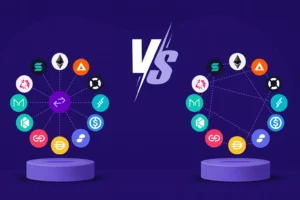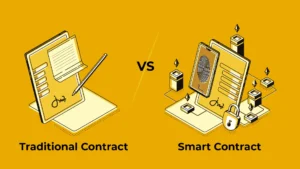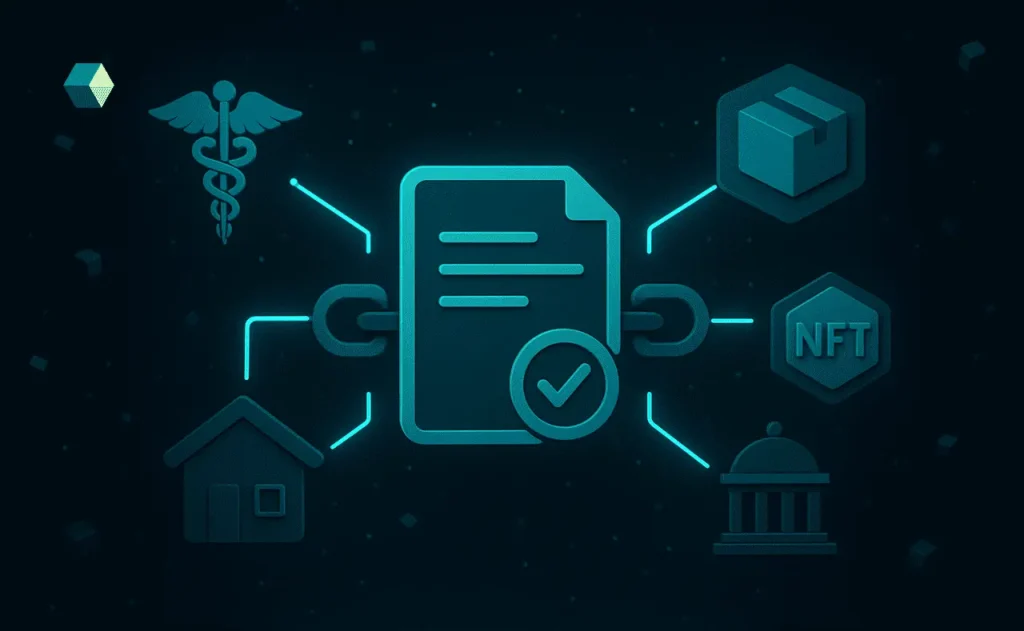
Understanding the Applications of Smart Contracts
Over the last decade, blockchain technology has revolutionized how businesses and individuals interact online. At the core of this revolution lies the concept of smart contracts self-executing digital agreements that automatically enforce terms without intermediaries. The applications of smart contracts are vast, spanning industries such as finance, healthcare, supply chain, gaming, real estate, insurance, and more. By eliminating the need for middlemen, these contracts create trust, transparency, and efficiency across digital transactions.
As more organizations explore blockchain adoption, understanding the applications of smart contracts has become crucial. This article will explore real-world use cases, industry-specific examples, benefits, challenges, and the future potential of smart contracts.
What Are Smart Contracts?
Smart contracts are automated agreements stored on a blockchain that execute predefined actions when certain conditions are met. Unlike traditional contracts that require intermediaries such as lawyers or banks, smart contracts function autonomously.
Think of them like a vending machine:
- You insert money.
- The machine verifies the amount.
- You instantly receive your product.
No human intervention is required; this is exactly how smart contracts operate, but in digital ecosystems. Their ability to execute transactions automatically, securely, and transparently makes them ideal for numerous applications.
Want to Explore Real World Applications of Smart Contracts?
Start with Smart ContractsKey Features Enabling Applications
The versatility of smart contracts stems from several core features:
- Automation: Eliminates manual intervention, reducing errors and delays.
- Transparency: All participants can verify contract terms on the blockchain.
- Security: Blockchain encryption ensures data integrity and reduces fraud.
- Immutability: Once deployed, contracts cannot be altered arbitrarily.
- Programmability: Complex business logic can be implemented for conditional transactions.
- Global Reach: Transactions can be executed across borders without third-party approvals.
These features collectively enable smart contracts to be applied in a wide range of industries.
Applications of Smart Contracts in Finance

Finance is one of the earliest and most prominent adopters of smart contracts. Their applications of smart contracts in this sector are extensive:
1. Decentralized Finance (DeFi)
DeFi platforms rely on smart contracts to facilitate lending, borrowing, staking, and yield farming without centralized banks. Smart contracts automate interest payments, collateral management, and fund disbursement.
2. Cross-Border Payments
Smart contracts streamline international transfers by eliminating intermediaries, reducing costs, and speeding up settlements. Payments are executed instantly when predefined conditions, such as invoice approval, are met.
3. Insurance Claims
Insurance providers can use smart contracts to automate claims processing. For example, flight delay insurance can pay out automatically if a flight is delayed beyond a certain time, reducing paperwork and increasing customer satisfaction.
4. Trade Finance
In trade finance, smart contracts handle letters of credit, shipment verification, and payment release. This reduces fraud, enhances transparency, and accelerates transactions between buyers and suppliers.
Applications of Smart Contracts in Healthcare

Healthcare is another sector seeing significant transformation due to smart contracts. The applications of smart contracts here focus on privacy, interoperability, and efficiency:
1. Secure Patient Data Sharing
Smart contracts ensure that patient records are securely shared between hospitals, laboratories, and insurance companies while maintaining privacy and compliance with regulations like HIPAA.
2. Automated Billing
Hospitals can automate billing processes through smart contracts, reducing manual errors, ensuring accurate payments, and minimizing disputes between patients and providers.
3. Clinical Trials
Smart contracts manage consent forms, data collection, and participant compensation automatically, improving transparency and trust in clinical research.
Applications of Smart Contracts in Supply Chain
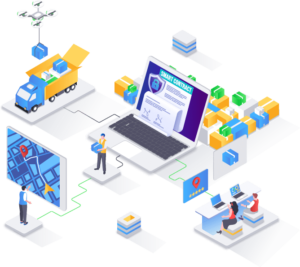
Supply chain management benefits greatly from transparency and automation. The applications of smart contracts here include:
1. Product Provenance
Smart contracts track products from manufacturing to delivery, providing verified, tamper-proof records of origin, handling, and storage conditions.
2. Automated Payments
Payments can be automatically released when goods reach a specified location or milestone, reducing delays and dependency on manual verification.
3. Compliance and Auditing
Smart contracts can monitor compliance with international trade regulations and generate audit-ready records, simplifying regulatory adherence.
Applications of Smart Contracts in Real Estate

The real estate sector leverages smart contracts to streamline property transactions and reduce intermediaries:
1. Tokenized Property Ownership
Properties can be represented as digital tokens, and smart contracts manage ownership transfers instantly upon purchase.
2. Lease Agreements
Smart contracts automate rent collection, deposit management, and lease renewals, ensuring transparent transactions between landlords and tenants.
3. Escrow Services
Funds for property purchases can be held in smart contracts and released only when all conditions, such as title verification, are met.
Applications of Smart Contracts in Gaming and NFTs
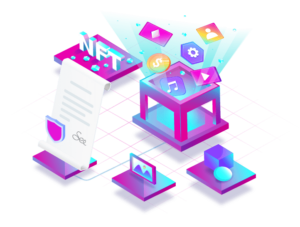
The gaming industry and NFT marketplaces are increasingly dependent on smart contracts:
1. In-Game Asset Management
Smart contracts manage ownership, trade, and rewards for in-game items, ensuring transparency and security for players.
2. NFT Marketplaces
NFTs rely on smart contracts to guarantee ownership, automate royalties to creators, and facilitate secure trading.
3. Player Incentives
Rewards, achievements, and tournament prizes can be automated, reducing disputes and administrative overhead.
Applications of Smart Contracts in Government and Legal Systems

Smart contracts are also transforming public sector and legal processes:
1. Voting Systems
Blockchain-based voting systems can use smart contracts to ensure transparent, tamper-proof elections.
2. Licensing and Permits
Government agencies can automate licensing, permit issuance, and renewal processes using smart contracts.
3. Legal Agreements
Smart contracts can codify and enforce contracts automatically, reducing the need for intermediaries and speeding up dispute resolution.
Benefits of Smart Contract Applications
Across all industries, the applications of smart contracts bring several key advantages:
- Efficiency: Faster transactions with minimal human intervention.
- Transparency: Participants can verify every action on the blockchain.
- Cost Savings: Reduced intermediaries lower operational expenses.
- Trust: Automated execution reduces the need to rely on third parties.
- Security: Blockchain encryption prevents tampering and fraud.
- Accessibility: Anyone with internet access can participate globally.
Challenges in Smart Contract Applications
Despite the benefits, implementing smart contracts comes with challenges:
- Regulatory Uncertainty: Different countries have varying rules around blockchain usage.
- Coding Risks: Errors in contract logic can result in financial losses.
- Scalability: Large-scale applications may face network congestion.
- User Awareness: Many users and organizations are still unfamiliar with smart contracts.
- Data Reliability: Smart contracts rely on external oracles, which may be compromised.
Transform Your Ideas into Automated, Trustworthy Smart Contracts
Build with Smart ContractsFuture Trends in Smart Contract Applications
The future of smart contracts is promising, with several innovations on the horizon:
- Cross-Chain Compatibility: Smart contracts will operate across multiple blockchain networks seamlessly.
- AI Integration: Artificial intelligence will allow contracts to adapt and optimize based on real-time data.
- IoT-Enabled Contracts: Smart devices will trigger contract conditions automatically.
- Mass Adoption: Everyday users will increasingly interact with smart contracts for payments, ownership, and digital services.
- Sustainability Focus: Energy-efficient blockchains will make smart contracts more eco-friendly.
Why the Applications of Smart Contracts Matter Across Industries
The applications of smart contracts are revolutionizing industries worldwide. From finance and healthcare to gaming, real estate, and government services, smart contracts are creating faster, more transparent, and secure systems.
As organizations continue to explore blockchain adoption, understanding these applications will be essential for leveraging efficiency, trust, and innovation. Smart contracts are no longer just a concept, they are shaping the future of business, governance, and everyday transactions.
By embracing these applications, businesses and individuals alike can participate in a digital ecosystem that is automated, secure, and globally accessible. The journey of smart contracts is just beginning, and their potential across industries is limitless.
Frequently Asked Questions
Are smart contracts completely secure?
Smart contracts are secure due to blockchain immutability and encryption, but vulnerabilities in coding or reliance on external data sources can create potential risks that require careful management.
How do smart contracts improve efficiency?
By automating transactions and agreements, smart contracts eliminate intermediaries, reduce manual errors, speed up processes, and ensure tasks are executed instantly when predefined conditions are met.
Can smart contracts handle complex transactions?
Yes, smart contracts can manage complex, multi-step transactions automatically, using programmable logic to trigger actions only when all predefined conditions across different parties or systems are satisfied.
What are the main applications of smart contracts?
Smart contracts are used in finance, healthcare, supply chain, real estate, gaming, legal, and government sectors to automate processes, ensure transparency, reduce costs, and enhance security.
Which industries benefit most from smart contracts?
Finance, supply chain, healthcare, gaming, real estate, legal, and government sectors benefit most, as smart contracts provide automation, transparency, cost reduction, and trust in digital operations.
What advantages do smart contracts offer businesses?
Smart contracts offer transparency, trust, security, global accessibility, cost savings, faster execution, and reduced dependency on intermediaries, transforming business operations and digital transactions efficiently.


